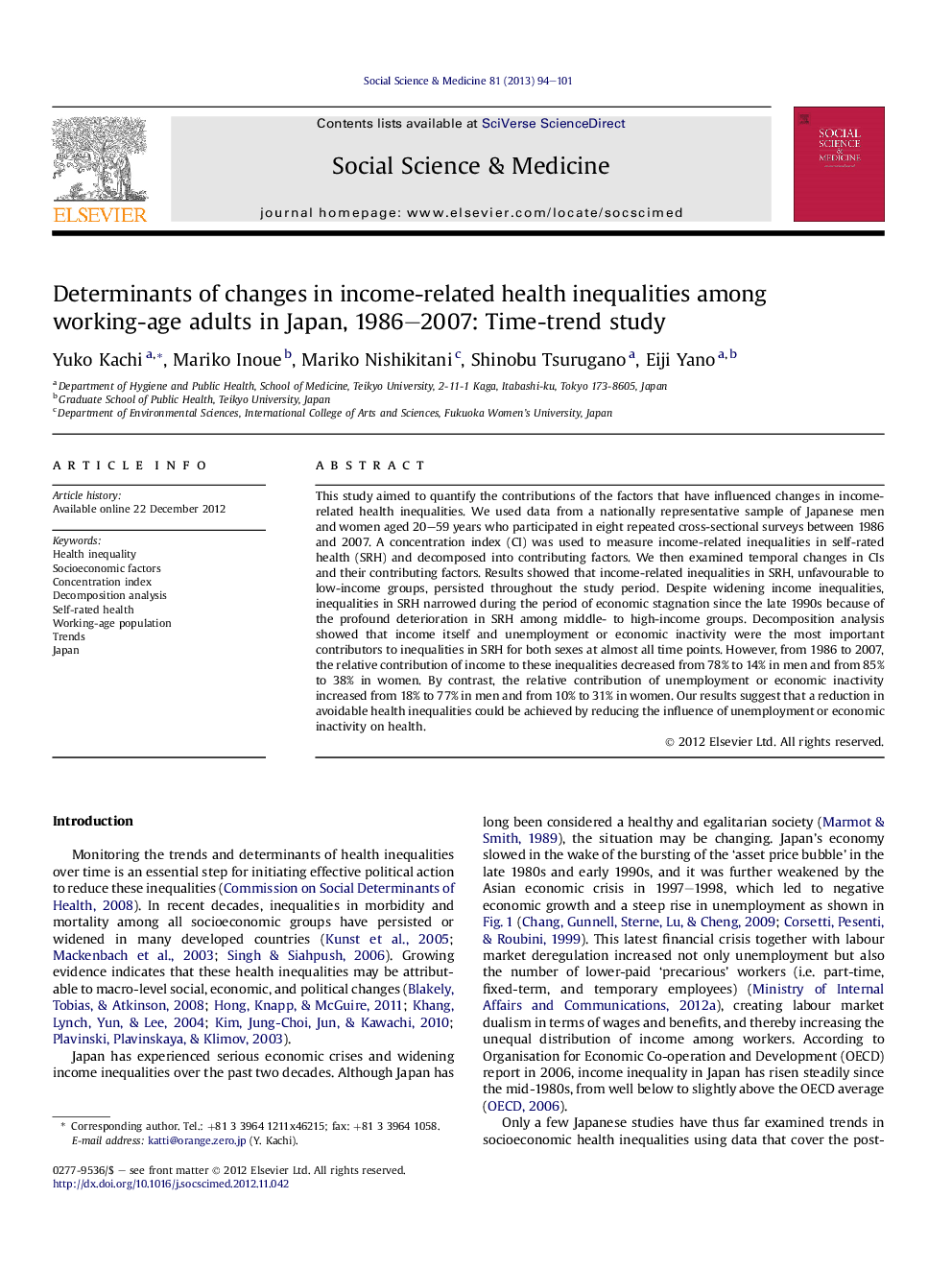| کد مقاله | کد نشریه | سال انتشار | مقاله انگلیسی | نسخه تمام متن |
|---|---|---|---|---|
| 952334 | 1476087 | 2013 | 8 صفحه PDF | دانلود رایگان |
This study aimed to quantify the contributions of the factors that have influenced changes in income-related health inequalities. We used data from a nationally representative sample of Japanese men and women aged 20–59 years who participated in eight repeated cross-sectional surveys between 1986 and 2007. A concentration index (CI) was used to measure income-related inequalities in self-rated health (SRH) and decomposed into contributing factors. We then examined temporal changes in CIs and their contributing factors. Results showed that income-related inequalities in SRH, unfavourable to low-income groups, persisted throughout the study period. Despite widening income inequalities, inequalities in SRH narrowed during the period of economic stagnation since the late 1990s because of the profound deterioration in SRH among middle- to high-income groups. Decomposition analysis showed that income itself and unemployment or economic inactivity were the most important contributors to inequalities in SRH for both sexes at almost all time points. However, from 1986 to 2007, the relative contribution of income to these inequalities decreased from 78% to 14% in men and from 85% to 38% in women. By contrast, the relative contribution of unemployment or economic inactivity increased from 18% to 77% in men and from 10% to 31% in women. Our results suggest that a reduction in avoidable health inequalities could be achieved by reducing the influence of unemployment or economic inactivity on health.
► Income-related health inequalities among working-age adults in Japan narrowed after the economic crisis of the late 1990s.
► The contribution of income itself to income-related health inequalities decreased from 1986 to 2007.
► Instead, unemployment or economic inactivity has become relatively more influential for income-related health inequalities.
Journal: Social Science & Medicine - Volume 81, March 2013, Pages 94–101
